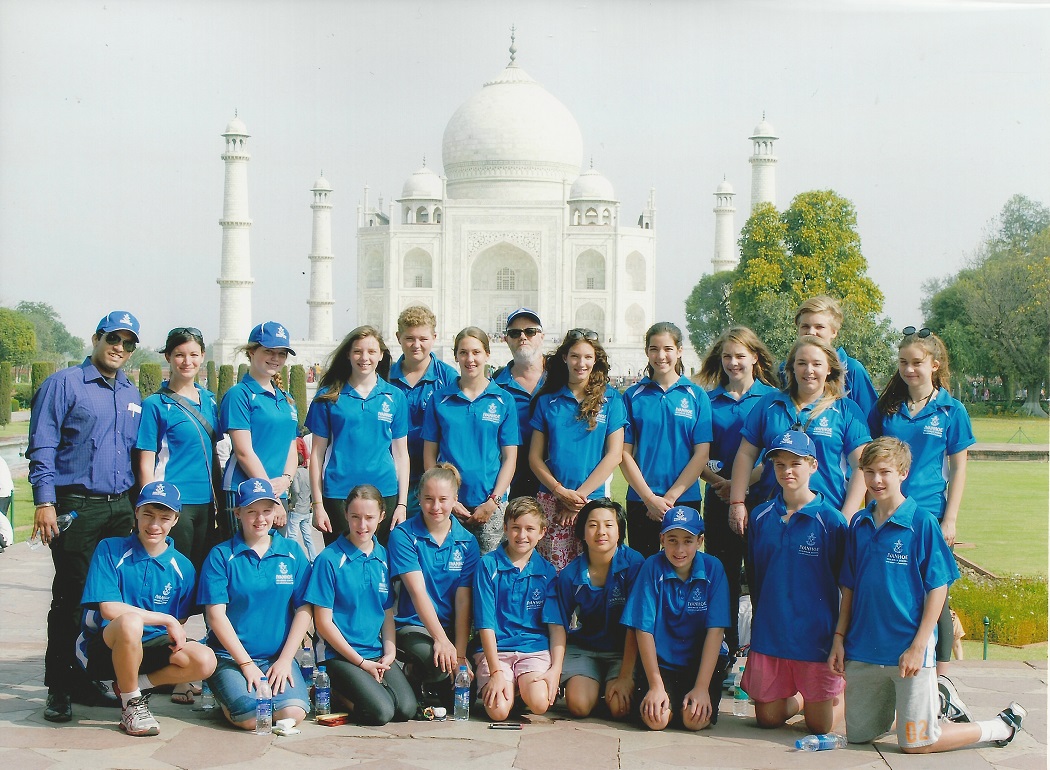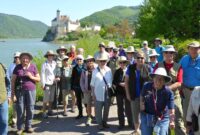Educational tours for adults offer a unique blend of learning and adventure, transcending the traditional classroom setting. These immersive experiences cater to diverse interests, from historical explorations to culinary adventures, fostering personal growth and enriching knowledge in engaging ways. This guide delves into the planning, execution, and marketing of successful adult educational tours, offering a comprehensive framework for creating memorable and impactful journeys.
We’ll explore the diverse needs and motivations of adult learners, examining various tour types and the curriculum development needed to create engaging and effective learning experiences. We’ll also cover the crucial logistical aspects, including marketing, risk management, and sustainable tourism practices, to ensure a smooth and responsible tour operation. Finally, we’ll discuss methods for evaluating the success of your tours and using feedback to improve future offerings.
Defining the Target Audience for Adult Educational Tours
Understanding the diverse needs and motivations of adult learners is crucial for designing successful educational tours. Adult education is not a monolithic entity; it encompasses a wide spectrum of interests, learning styles, and personal goals. Effectively targeting this diverse group requires a nuanced understanding of their characteristics and expectations.
Diverse Interests and Learning Styles of Adult Learners
Adults approach learning with a wealth of prior experiences and established preferences. Some may favor hands-on activities and experiential learning, while others prefer lectures and structured presentations. Interests vary widely, from historical exploration and cultural immersion to scientific discovery and culinary adventures. Understanding these diverse learning styles and interests is paramount in crafting engaging and effective tour itineraries. For example, a tour focusing on ancient Roman history might incorporate both guided site visits and interactive workshops for diverse learning styles.
Motivations for Participation in Educational Tours
Adults participate in educational tours for a multitude of reasons. Some seek personal enrichment and intellectual stimulation, others aim to broaden their horizons and gain new perspectives. Many are motivated by a desire for social interaction and the opportunity to connect with like-minded individuals. Furthermore, some may participate to fulfill professional development needs or to enhance their travel experiences with a deeper understanding of their destinations. The desire for both leisure and learning is a significant driving force for many participants.
Profiles of Distinct Adult Learner Segments
The following outlines three distinct segments of adult learners, each with unique needs and preferences:
- The Enthusiastic Explorer: This segment prioritizes immersive experiences and independent exploration. They are often highly motivated, self-directed learners who value opportunities for hands-on activities and personal discovery. They may prefer smaller group sizes or even independent travel options with curated itineraries. An example would be a seasoned traveler who seeks in-depth knowledge of a specific historical period or artistic movement.
- The Knowledgeable Seeker: This group possesses a strong foundation of knowledge in a specific area and seeks to deepen their expertise through specialized tours. They appreciate in-depth lectures, expert-led discussions, and opportunities for interaction with leading academics or professionals in the field. A potential example would be a retired history professor participating in a tour focused on a specific historical event or figure.
- The Relaxed Learner: This segment prioritizes comfort and convenience. They value well-organized itineraries, comfortable accommodations, and minimal stress. They appreciate a balance between structured learning and free time for relaxation and personal exploration. An example would be a couple seeking a culturally enriching vacation with minimal logistical challenges.
Survey to Gauge Preferences and Expectations
A survey can effectively gauge potential participants’ preferences and expectations. The survey should include questions regarding preferred learning styles, travel preferences, desired level of structure, budget considerations, and specific interests related to the tour’s subject matter. For example:
| Question Type | Example Question |
|---|---|
| Multiple Choice | What is your preferred learning style? (a) Hands-on activities (b) Lectures and presentations (c) A mix of both |
| Rating Scale | How important is it to you that the tour includes opportunities for independent exploration? (1-5 scale, 1 being not at all important, 5 being very important) |
| Open-ended | What are your expectations for this educational tour? |
Curriculum Development and Content Creation
Crafting engaging and informative curricula is paramount for successful adult educational tours. A well-structured curriculum ensures learners achieve specific learning objectives while enjoying a rich and memorable experience. This involves careful consideration of content, activities, and the overall tour design.
Sample Curriculum: A Week-Long Historical Tour of Colonial Williamsburg, Virginia
This week-long tour focuses on the history and social dynamics of Colonial Williamsburg. Each day builds upon the previous one, culminating in a comprehensive understanding of the period.
| Day | Itinerary | Learning Objectives |
|---|---|---|
| 1 | Arrival in Williamsburg, orientation, guided walking tour of the historic area, introductory lecture on 18th-century Virginia. | Understand the geographical and political context of Colonial Williamsburg; Identify key figures and events of the era. |
| 2 | Visit to the Governor’s Palace, demonstrations of colonial crafts (blacksmithing, weaving), interactive session on colonial social structures. | Analyze the social hierarchy and daily life in Colonial Williamsburg; Appreciate the skills and craftsmanship of the time. |
| 3 | Exploration of the Capitol Building, lecture on the evolution of American governance, discussion on the lead-up to the American Revolution. | Understand the political climate and the debates leading to the American Revolution; Analyze the role of Williamsburg in shaping American identity. |
| 4 | Visit to a plantation, discussion on slavery and its impact on colonial society, exploration of the lives of enslaved people. | Examine the complex issue of slavery in Colonial Williamsburg; Understand the perspectives and experiences of enslaved individuals. |
| 5 | Visit to the DeWitt Wallace Decorative Arts Museum, workshop on 18th-century fashion and etiquette, guided tour of historic homes. | Appreciate the artistic and cultural achievements of the era; Understand the social customs and etiquette of the time. |
| 6 | Interactive role-playing exercise simulating a colonial town meeting, discussion on the legacy of Colonial Williamsburg. | Develop critical thinking skills by participating in historical reenactment; Reflect on the lasting impact of Colonial Williamsburg on American history. |
| 7 | Departure, concluding discussion and feedback session. | Synthesize the week’s learning; Provide feedback on the tour experience. |
Interactive Learning Activities for Adult Learners
Engaging adult learners requires active participation. Interactive activities enhance knowledge retention and create a more enjoyable learning environment.
Examples include:
- Historical reenactments: Participants can dress in period clothing and engage in simulated historical events, fostering deeper understanding through embodied experience.
- Debates and discussions: Structured debates on controversial historical topics encourage critical thinking and diverse perspectives.
- Hands-on workshops: Learning colonial crafts or cooking techniques provides a sensory and engaging learning experience.
- Group projects and presentations: Collaborative projects encourage teamwork and allow learners to showcase their acquired knowledge.
Incorporating Storytelling and Experiential Learning
Storytelling breathes life into historical facts. Experiential learning makes abstract concepts tangible and memorable.
Techniques include:
- Using primary sources: Incorporating letters, diaries, and other primary sources allows learners to connect with the past on a personal level.
- Employing local guides: Passionate local guides can share captivating anecdotes and insights, enriching the learning experience.
- Creating immersive environments: Visiting historical sites and engaging in hands-on activities creates a memorable and immersive learning experience.
- Utilizing multimedia: Incorporating images, videos, and audio recordings adds another layer of engagement and understanding.
Detailed Itinerary: A Three-Day Culinary Tour of Tuscany, Italy
This tour focuses on the regional cuisine and wine production of Tuscany.
| Day | Itinerary | Learning Opportunities |
|---|---|---|
| 1 | Arrival in Florence, guided walking tour of the Oltrarno neighborhood, hands-on pasta-making class, dinner featuring Tuscan specialties. | Explore the historical context of Tuscan cuisine; Learn fundamental pasta-making techniques; Sample authentic Tuscan dishes. |
| 2 | Visit to a Chianti Classico winery, wine tasting and vineyard tour, lunch paired with local wines, cooking demonstration focusing on regional meats and vegetables. | Understand the winemaking process in Chianti; Learn about grape varietals and terroir; Explore the culinary traditions surrounding meat and vegetable preparation. |
| 3 | Visit to a local market, cooking class focusing on regional desserts, final dinner showcasing the week’s learnings, departure. | Discover the local ingredients and their seasonality; Master the art of making Tuscan desserts; Reflect on the culinary journey through Tuscany. |
Closing Summary
Successfully designing and implementing educational tours for adults requires a multifaceted approach that considers the target audience, curriculum design, logistical planning, and marketing strategies. By focusing on creating immersive and enriching experiences that cater to diverse learning styles and interests, tour operators can create truly transformative journeys. Remember that incorporating sustainable practices and actively seeking participant feedback are essential for ensuring both the long-term success of your tours and the responsible exploration of our world.




